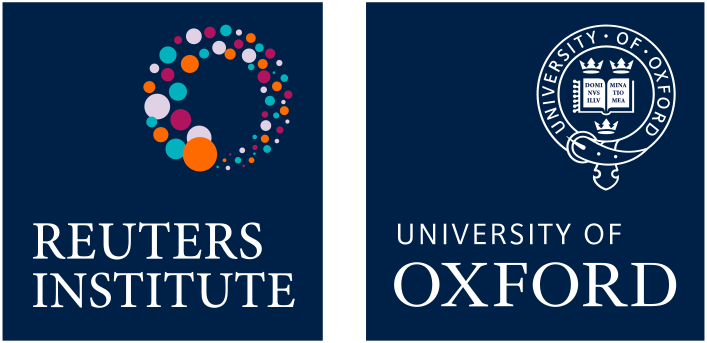
Bulgaria
The Bulgarian media environment struggles with systemic issues of political interference, limited pluralism, and low levels of public trust. The country continues to be rocked by severe political turbulence, culminating in two snap parliamentary elections in 2024 and the return to power of the GERB, the centre-right party of former ‘strongman’ prime minister Boyko Borisov.
Bulgaria has held seven elections in four years, contributing to widespread voter apathy, disillusionment, and election fatigue. The 2024 elections were marred by record low turnout and allegations of vote-buying and corruption. The pro-Russian far-right party Velichie (Greatness) disputed the October election results after it failed to enter Parliament, short of 30 votes. Following a protracted case, the Bulgarian Constitutional Court found numerous election irregularities and declared the results for 16 parliamentary seats illegal. Velichie entered Parliament after a recount, becoming the second far-right party alongside Vazrazhdane (Revival) in a divided National Assembly.
On 1 January 2025, Bulgaria became a full member of the border-free Schengen zone, marking a significant milestone for the country, which has been working on fulfilling the Schengen area membership criteria since 2011. However, the timing of Bulgaria’s joining the eurozone is a divisive issue among citizens and the fragile ruling coalition. To show their disapproval, activists from the pro-Russian ultra-nationalist party Vazrazhdane turned to violent protests, briefly occupying the Bulgarian National Bank’s building and vandalising the office of the European Commission in the capital, Sofia.
The frequent changes in governments have delayed important reforms and directives necessary for the gradual implementation of the European Media Freedom Act, which came into force in May 2024. The Act aims to address several enduring issues that plague the Bulgarian media landscape, such as lack of transparency of media ownership, state interference in the public service media, and control over media regulators.
Journalists in Bulgaria continue to work in a challenging environment, facing high levels of stress, burnout, political pressure, and physical attacks in their reporting of elections. In March 2025, a UK-based Bulgarian spy ring was found guilty of spying for Russia. The trio, with alleged links to the ‘highest echelons of power’ in Bulgaria, placed the award-winning investigative journalist Christo Grozev from Bellingcat under intense surveillance, with discussions among the ring to kidnap and kill the journalist.
In a landmark decision for the Bulgarian media environment, in June 2024 the European Court of Human Rights (ECHR) issued a unanimous judgment in the long-running case of the Bulgarian reporter Rosen Bosev (Bosev v. Bulgaria) who appealed his 2017 conviction of defamation of a senior government official. The Court held that there had been a violation of the journalist’s right to a fair trial and a violation of the right to the freedom of expression.1 The case is significant in the context of increased use of Strategic Lawsuits Against Public Participation (SLAPPs) by public officials to silence critical journalism.
Nova TV, owned by Nova Broadcasting Group, and BTV news, owned by BTV group, are leading news sources on TV and online. With a 92% market share, both media groups dominate the relatively small advertising landscape, attracting the majority of advertising revenue.2 24 Chasa is still the leading print news source but overall, the press experienced a significant fall of 10% in advertising revenues.3 While few people pay for news, Dnevnik.bg and Capital (Economedia AD) are among the few quality news outlets combining digital subscriptions with advertising income.
Younger audiences increasingly get news from TikTok, allowing parties like Velichie to campaign exclusively on the platform, reaching large audiences in Bulgaria and abroad. Instrumental in the election success of far-right parties are popular ‘influencer’ social media personalities and vloggers, with their own YouTube or Patreon channels promoting anti-establishment, nationalist, or pro-Russian viewpoints. Notable examples are the former athlete Kiril Kirilov, and Martin Karbowski, with 233,000 YouTube subscribers, who positions his channel as a source for discussions and questions absent from traditional television. Other content creators with radical views such as Stanislav Tsanov have spread their own anti-establishment perspectives, whether about the pandemic or the war in Ukraine, and they present increasingly strong competition to traditional media outlets in influencing public discourse.
Nationalist influencers aside, independent journalists are also successfully building large digital audiences for their content and commentary. Journalists like Lyubomir Zhechev, who has won awards for his rule-of-law videos, and investigative reporters Mirolyuba Benatova and Genka Shikerova, creators of the Dneven Red (Daily Order) podcast, provide popular alternative viewpoints on current events.
Lada T. Price
University of Sheffield, UK
Methodology note
We introduced education quotas in 2023 to make data more representative of national populations. Part of the declines in reach in the source chart between 2022 and 2023 will be because there are more people with lower levels of education in our sample, who typically have lower interest in news.
Pay for online news
9%
Trust in news overall
26%
(-3)
=44/48
The highly volatile political environment probably contributes to the continuing declining trust in news and the fact that Bulgaria has the highest level of news avoidance (63%) in our survey. PSB’s Bulgarian National Television and Bulgarian National Radio remain the most trusted brands, followed by the two leading private TV channels Nova TV News and BTV News.

